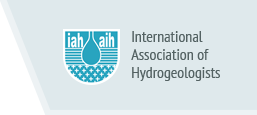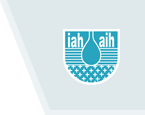Join us at IAH 2018 in Korea!
The IAH-BGID is running a special session on 11th September 2018, 16:00 – 18:00 on:
“Socio-hydrogeology for ground water development in low-income countries”
There is also the IAH-BGID Annual General Meeting on 10th September 2018, 18:00 – 19:00.
Follow all the updates using #IAH2018 and we hope to see you there!
T 1.7 Socio-Hydrogeology for Ground Water Development in Low-Income Countries
Convenors: Viviana Re (University of Pavia, Italy & IAH-BGID), Alan MacDonald (BGS, United Kingdom & IAH-BGID)
How people interact with groundwater is fundamental to the sustainability of supply. Humans exert pressure on groundwater through abstraction and pollution load, which in turn impacts society through falling water tables, decreasing well yields or deteriorating water quality. This is particularly important in areas where there are little alternatives for water supply and where poor people can be disproportionally affected by degrading resources. This session is aimed at discussing the social hydrogeological interactions with a focus on poverty reduction and contributing to achieving SDG 6 (Clean Water and Sanitation).
Including the social dimension in hydrogeological investigations through structured activities can have many benefits: increasing the long term success of interventions; increasing public engagement; building capacity; facilitating data collection and hydrogeological understanding; and targeted interventions to have the greatest benefit. Overall the socio-hydrogeological approach enables hydrogeologists to provide better support to decision makers and the governance of groundwater to the benefit of all.
This session is aimed at discussing the role of socio-hydrogeology in poverty reduction and contributing to achieving SDG 6 (Clean Water and Sanitation). In particular, the following topics will be discussed: (1) examples of combined social and groundwater science studies; (2) tools and methods (e.g. participatory approaches, stakeholders analysis and public engagement); (3) new multidisciplinary frameworks to tackle emerging groundwater issues in low income countries; (4) challenges and opportunities raising from the integration of hydrogeology and social sciences; and (5) current and future challenges in improving the understanding of groundwater in poor regions worldwide.




